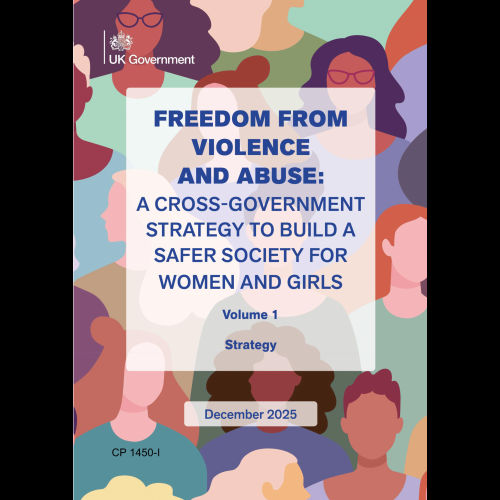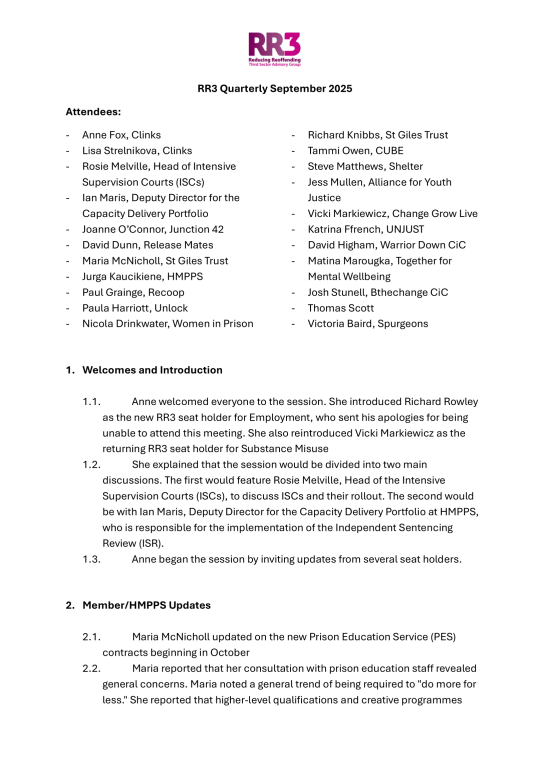Today Michael Gove, Secretary of State for Justice, announced a review of education provision in prisons, that will make recommendations in Spring 2016.
His speech to the Prisoner Learning Alliance earlier in the summer, which I blogged on back then, hinted at his intention to examine prison education and, given his position in the coalition government as Education Minister, it is unsurprising that he has chosen this area as the focus of his first substantive announcement as Justice Minister.
So based on the announcement and that earlier speech, what might we expect from the review and what do we suggest it needs to consider?
In the announcement the Secretary of State focuses on the need to ensure that adults in custody gain literacy and numeracy skills in order to make them employable and positive contributors to society. Clinks would stress that while these skills are of course vital, a wide ranging curriculum is also necessary to ensure educational activities are truly engaging.
Many people in contact with the Criminal Justice System need to develop qualities and skills such as resilience, self-confidence, communication and team work. Not only are these wider life skills critical for challenging offending behaviour, but they can also act as a foundation or stepping stone on the path to engaging with more traditional forms of learning.
The voluntary sector makes a key contribution to this, with many organisations excelling at providing education services which encompass more creative approaches to learning, often making use of the arts or sport to engage learners and complement more traditional learning methods. The National Alliance for Arts in Criminal Justice and the soon to be launched Sports Alliance CJS both support the development of creative interventions to support people in prison with impressive results. We would therefore hope that the review’s investigation of how the quality and methods of prison teaching can be improved will acknowledge this and in its recommendations look to further support such approaches.
Michael Gove mentions in his announcement the importance of education to rehabilitation, particularly for those serving longer sentences. This is an important point which again highlights the need for a wide ranging curriculum that provides continued progression.
It is also vital that the review considers the makeup of the prison population in its work. The over representation of people within the CJS with learning disabilities means that it is vital that educational opportunities are suitably tailored. In addition the over representation of other groups with protected characteristics such as people from Gypsy, Traveller, Roma or Afro Caribbean backgrounds who are also over represented in both exclusions from school and as looked after children, which is likely to affect the engagement with education, should be a key consideration.
The announcement also mentions the need for the right incentives for prisoners to learn and this is something which the Secretary of State expanded on in his speech in July. He stated that he was attracted to the idea of “earned release for those offenders who make a commitment to serious educational activity” and that more could be done to link the incentives and earned privileges scheme to educational attendance and achievement.
Finally the announcement talks about Governors having the right tools to be more demanding and creative about education provision which again links to his intention outlined in the July speech to give governors more autonomy and control.
Clinks welcomes this review, which has the potential to ensure that education in prisons provides meaningful learning opportunities and the wide ranging curriculum necessary to engage and inspire people in prison and provide them with the personal development, life skills and knowledge to transform their lives.
Clinks is also particularly pleased to hear that Rod Clark, Chief Executive of the Prisoners Education Trust (which provides the secretariat for the Prisoner Learning Alliance (PLA) of which Clinks is a member along with 23 other organisations) has been invited to represent the PLA as a member of the expert panel which will support the review. Read the Prisoner Learning Alliance statement on the review here.
Over the coming months Clinks will keep a close eye on the progress of the review, contribute to it through our membership of the Prisoner Learning Alliance and report any key developments to members through our ongoing blogs, briefings, tweets, and in Light Lunch.
What's new
Blogs
Violence Against Women and Girls (VAWG) Strategy Blog
Publications
Latest on X
The role is for a leader from an organisation focused on racially minoritised people, with expertise in service delivery, policy, advocacy, or related areas in criminal justice. Racial disparities are present at every CJS stage. This role ensures these voices are central in shaping policy to help address and eradicate them. Apply by Mon 18 Nov, 10am. More info: https://www.clinks.org/voluntary-community-sector/vacancies/15566 #CriminalJustice #RR3 #RacialEquity

